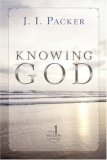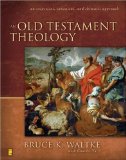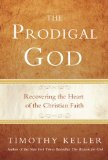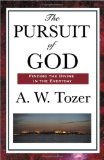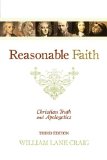Last week I posted a quick study on the early narratives of Samuel, showing the fall of Eli’s family, priests at Shiloh, and the rise of Samuel, the “faithful priest” the Lord raised up to replace the house of Eli. I noted there that the “narrative of 1 Samuel 1-7 is largely focused on this reversal.”
But there is another important storyline bubbling beneath the surface of these chapters that I don’t want to pass over. The sins of the Shiloh priests (detailed in my last post) in the first few chapters of Samuel set the stage for another important transition for the people of God.
The focus of Israelite worship at the beginning of 1 Samuel is Shiloh. This is where the priests served (however poorly), the tent of meeting was located and where the ark was kept. But starting in chapter 4, the ark leaves Shiloh never to return. Because the sins of the priests there, the Lord takes the ark from his people, through Philistine territory and back to Israel.
This section reminds me of Ezekiel’s vision in Ezekiel 8-11. There, Ezekiel is shown by the God the horrible sins being perpetuated by the leaders of Israel in the Temple (bowing to the sun, making idols, etc). God’s response to this constant idolatry and rejection of him is to pull his presence out of Jerusalem and leave his people, in effect. The end result is that Jerusalem is sacked by the Babylonians and the people carried into exile.
The stories aren’t exactly parallel, but they do make similar points. In both instances, the leaders of God’s people dishonor their God and abuse something he gave them for their own good (the sacrificial system, the ark, etc). In both instances God’s response is to remove his presence from their locus of worship for a time.
Eli’s sons, Hophni and Phinehas, treat the ark as a lucky rabbit’s foot. Rather than seeking the Lord’s help in battle, they presumptuously believe they can trot out their magical weapon and the Lord must work for them. The Lord refuses to play the role, so he demonstrates his own complete freedom: he causes the Philistines to win the battle, but rather than this indicating Dagon has defeated Yahweh, Yahweh defeats Dagon in his own temple (1 Samuel 5) and eventually the ark ends up in Kiriath Jearim for 20 years (7:1-2).
There’s nothing really said about the ark for a while. The astute reader, which I admit I was not for the first billion times I read this, will ask the question at some point, “what happened to the ark?” After all, for the first 6 chapters the ark is one of the two main characters, along with Samuel. For 3 chapters (4-6) Samuel is out of the picture and the entire story centers around the ark and its “travels.”
So we ought not be surprised when the ark storyline is picked back up in 2 Samuel 6. David brings the ark from Kiriath Jearim (with a pit stop at Obed-Edom’s house, lucky guy) to Jerusalem, where the Temple will eventually be built by his son, Solomon. It isn’t random that the book of Samuel ends on a story of David buying a threshing floor in Jerusalem to build an altar (2 Sam 24:18-25) in order to offer a sacrifice and end a plague. It is this location, according to 1 Chronicles 22:1, that the more permanent altar is built in the Temple.
So the narrative of the early chapters of 1 Samuel don’t just tell the story of Samuel replacing Eli and his sons, it sets the stage for the ark, representing the presence of God, moving to Jerusalem, the future home of the Temple.
Going back to my previous post, I quoted Conrad Mbewe, who once said, “The God of the universe will not allow his agenda to be hijacked by ungodly, selfish leaders.” There will always be leaders in the church- or any Christian, really- who will be characterized by ungodliness. There will always be those who treat God as a “cosmic vending machine,” who must give you what you want when you want it.
The Lord is patient, but he will, at some point, assert his own freedom. As much as he likes to bless his children, as important as his presence is in the church, he does not work for us. We cannot, as Mbewe says, “hijack” his plan.
God’s plan was for Israel to have godly leaders who honor him in their lives and in their worship. Eli and his family failed to do this, and failed miserably. So the Lord removed the ark from Shiloh and replaced the priests with Samuel. Eventually Israel has David as their king, the great king to whom all others are compared, who returns the ark to its rightful place for it to be placed in the Temple.
This all points to Jesus, the son of David, the great King and Priest to whom no other can be compared. Instead of attempting to enforce his own plan, Jesus openly admitted “I can do nothing on my own initiative” (Jn 5:30) and did what his Father planned. And Jesus is the Temple, where the presence of God dwells and sacrifice for sin is made. The presence of God returned to his people in Jesus and restored them, which was the Lord’s plan all along.


